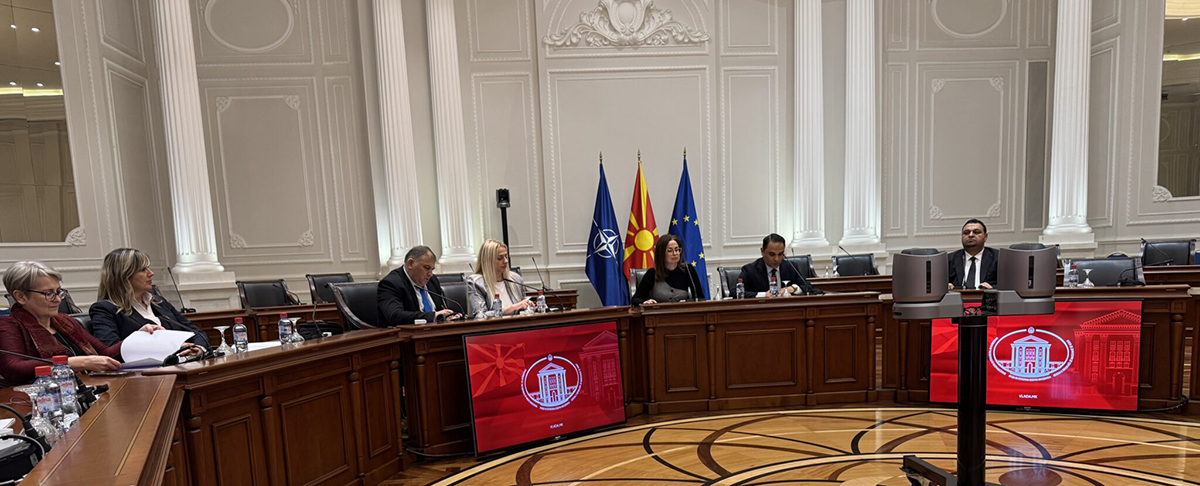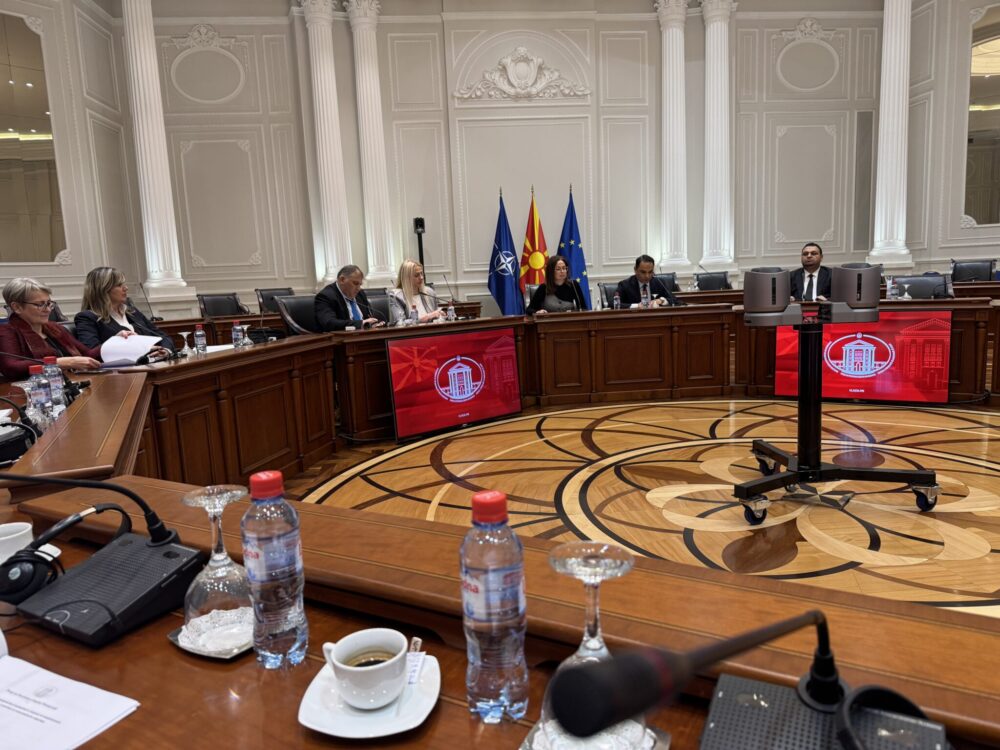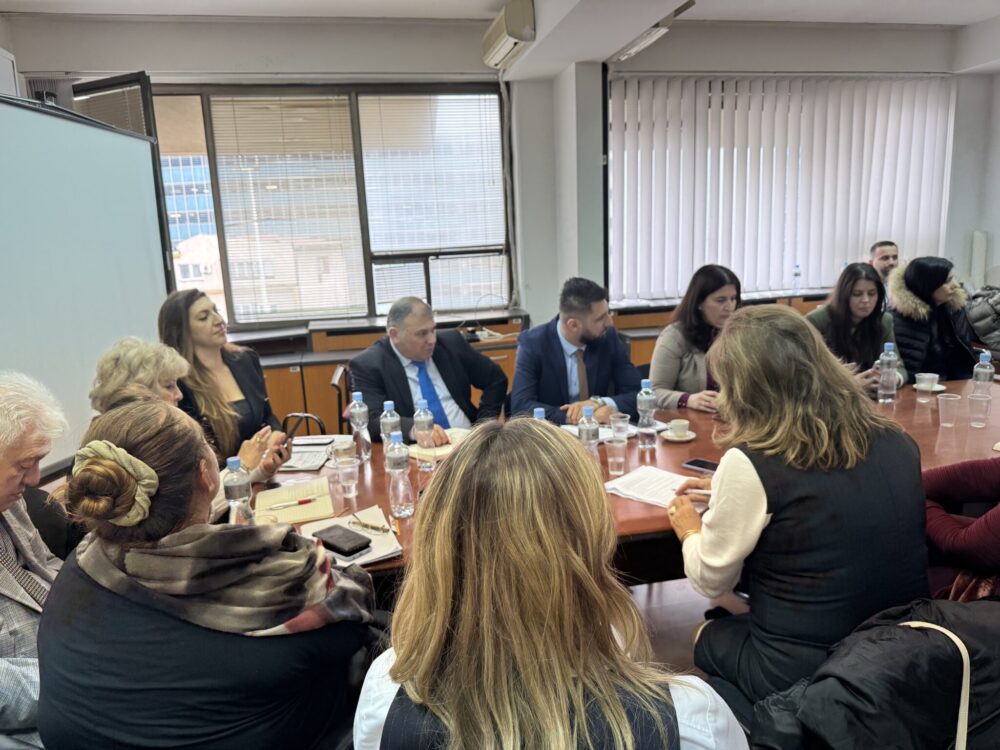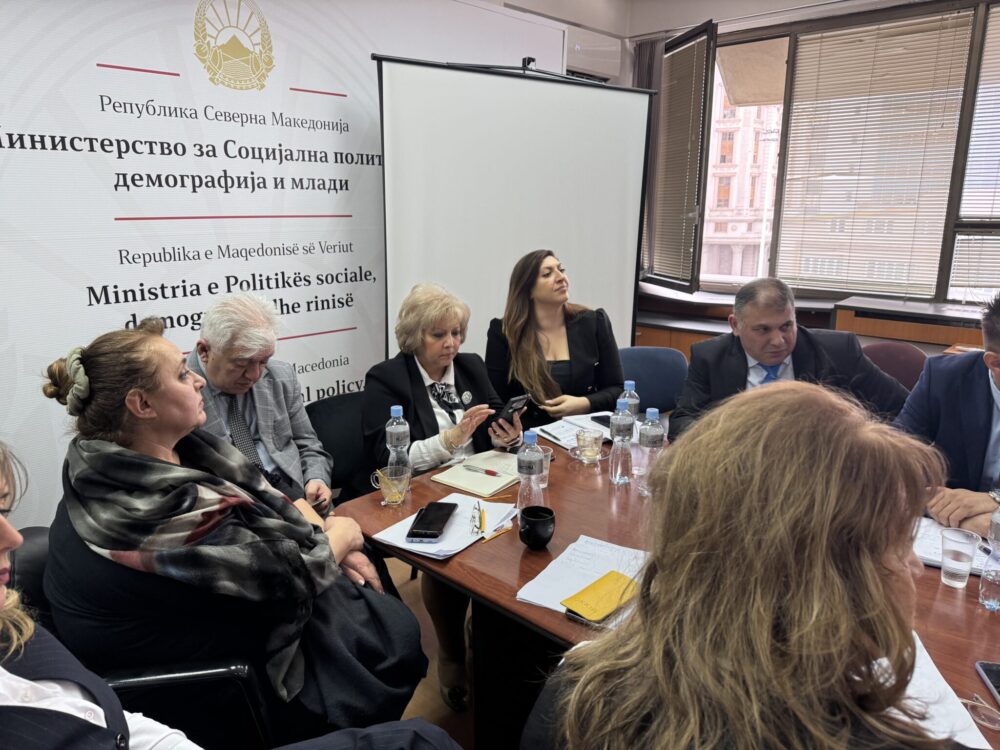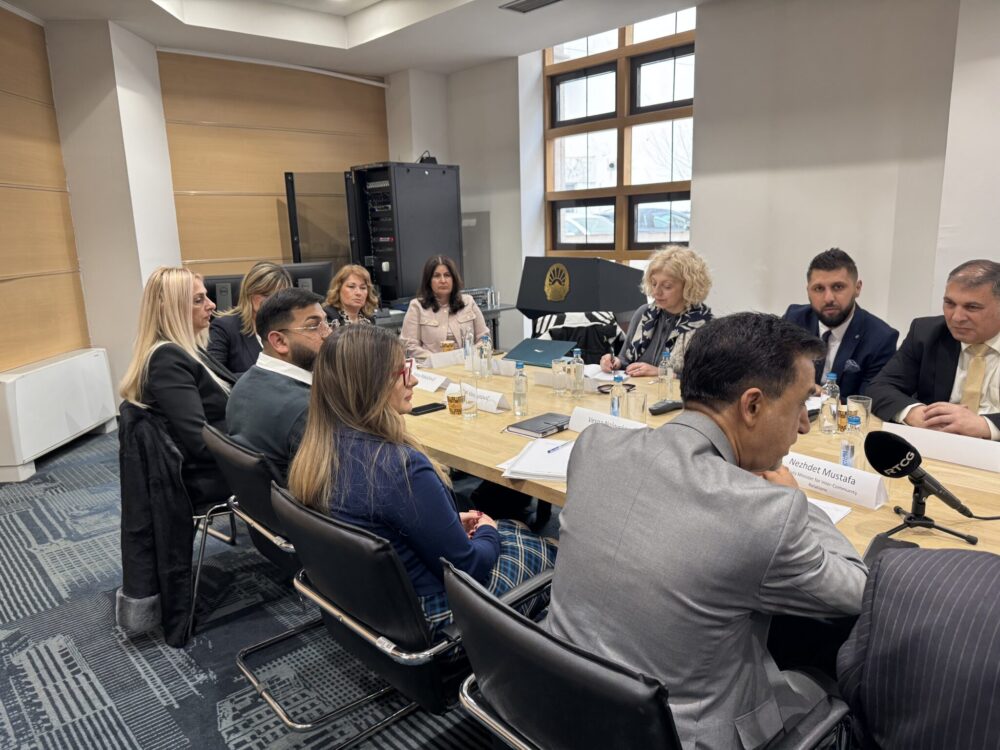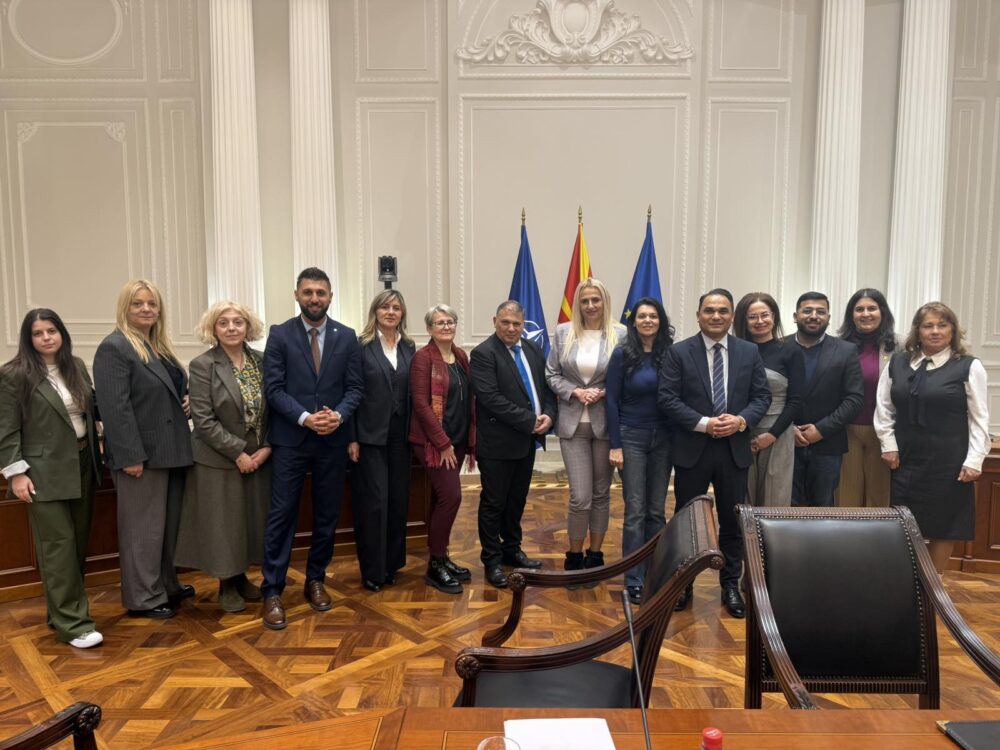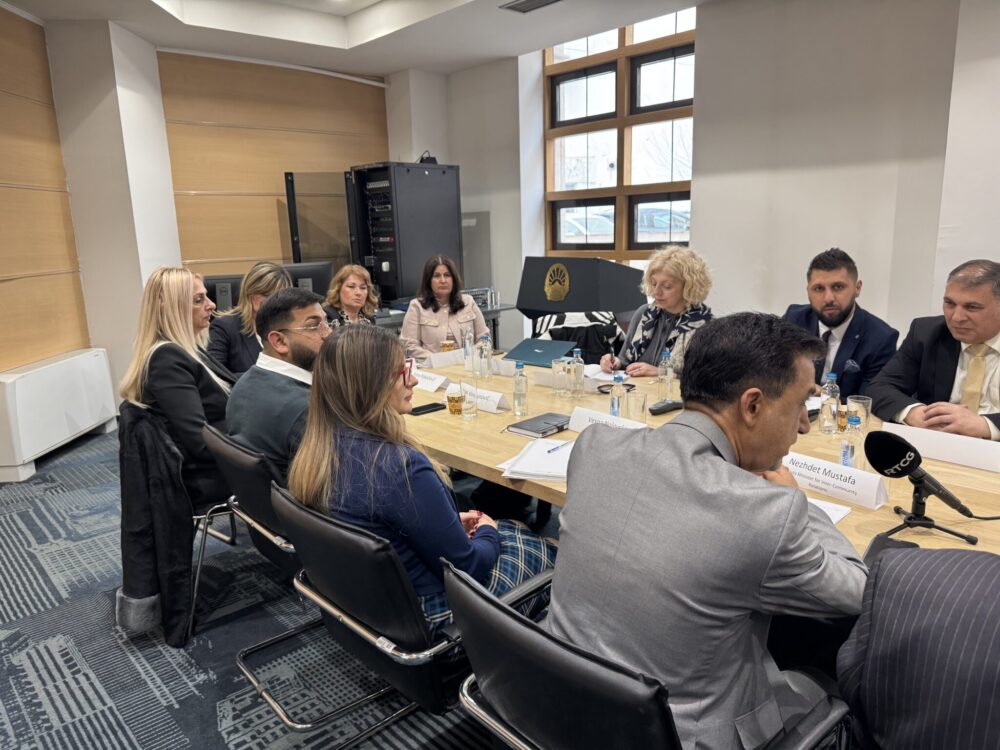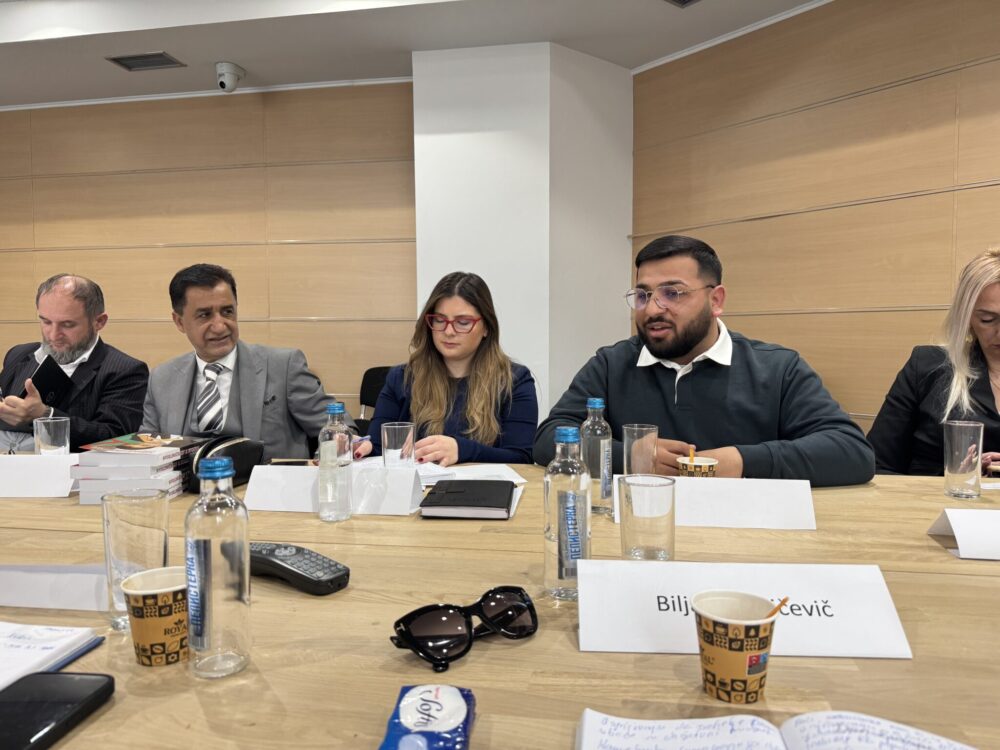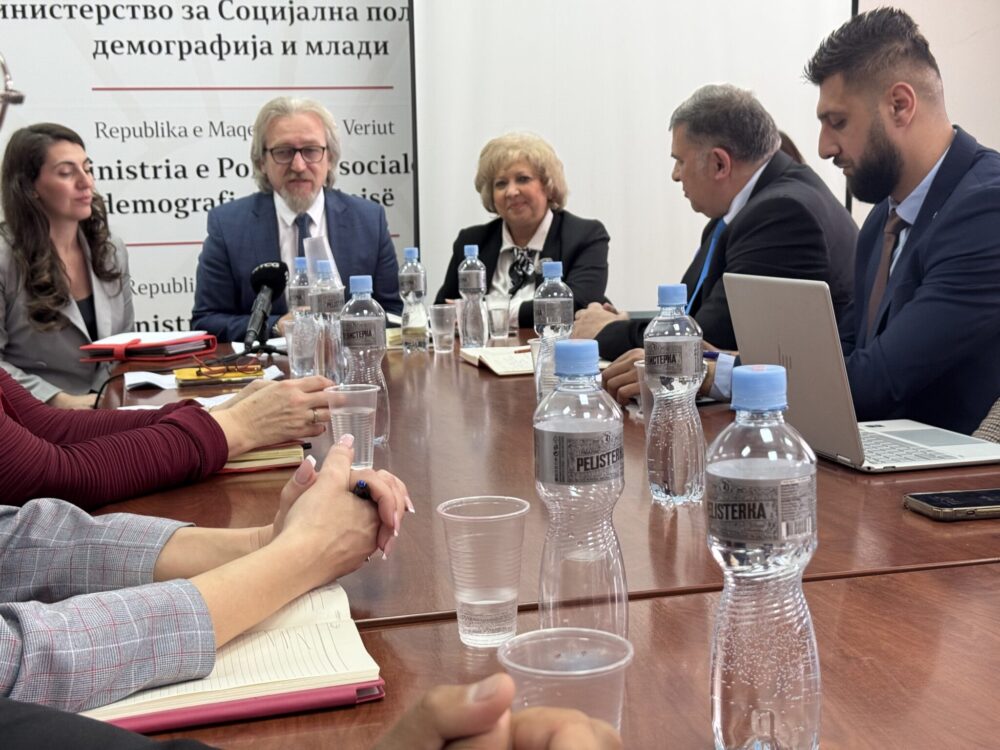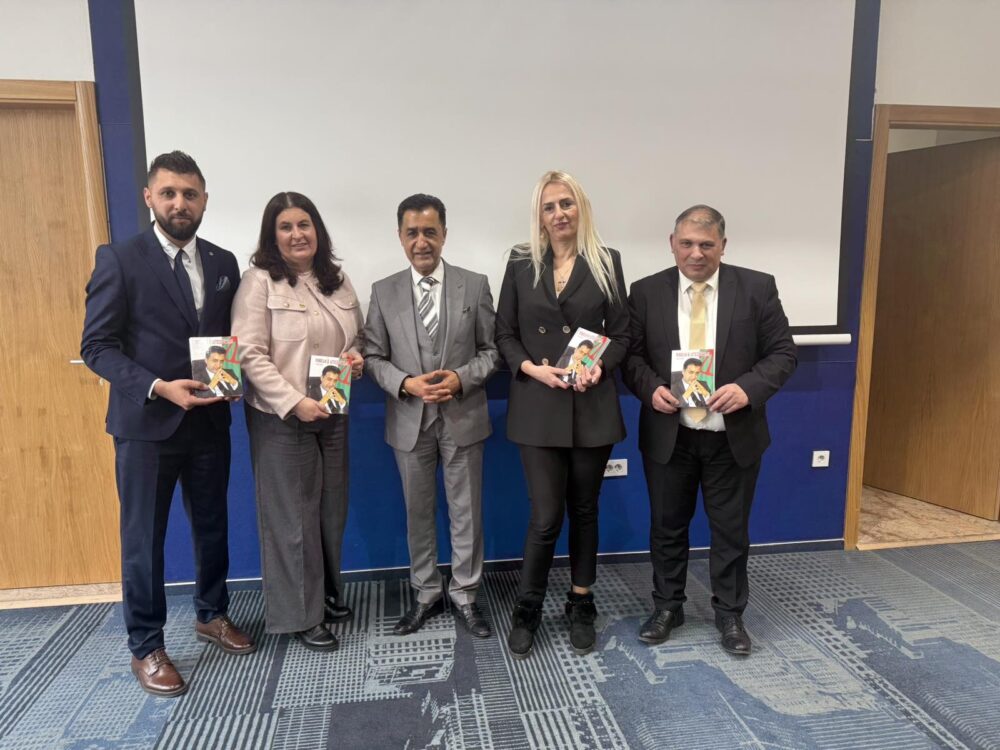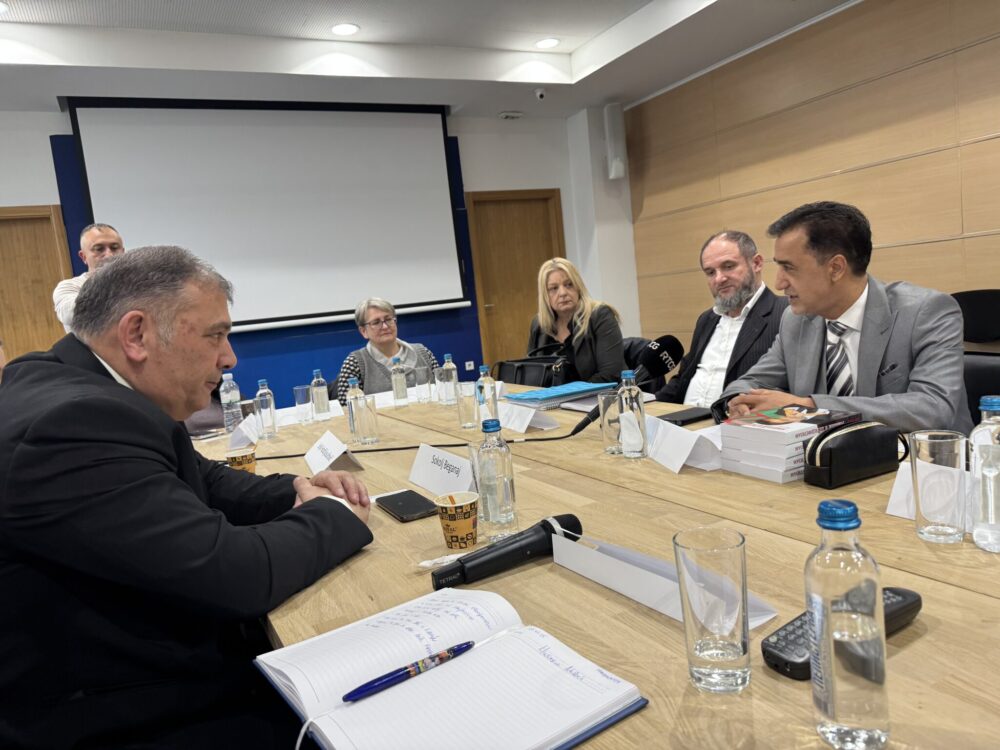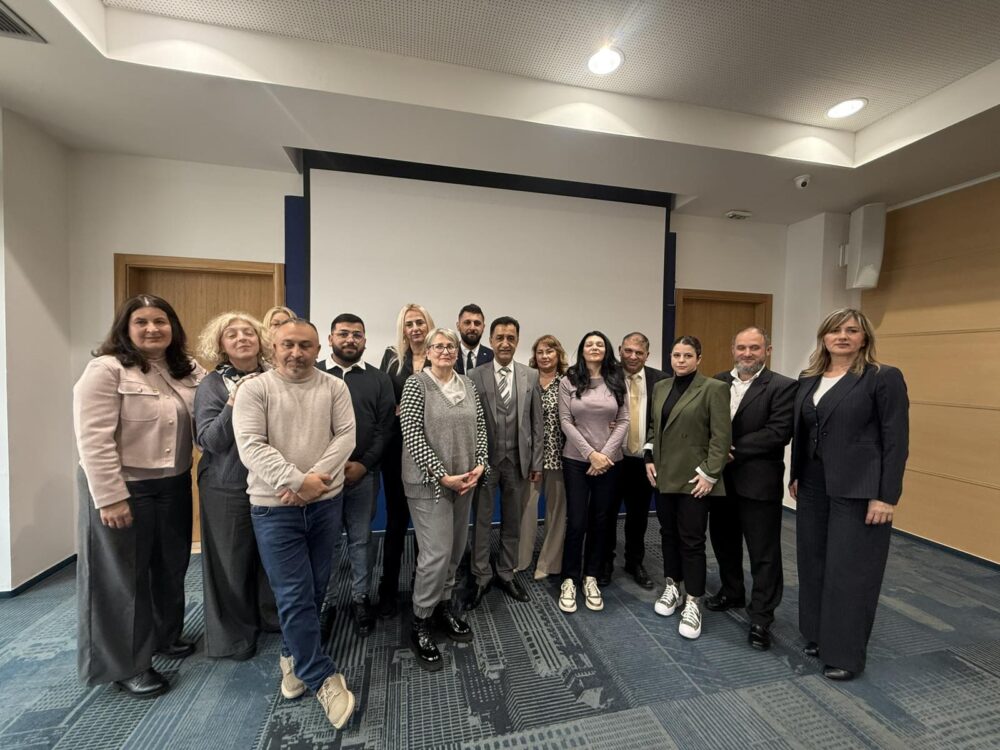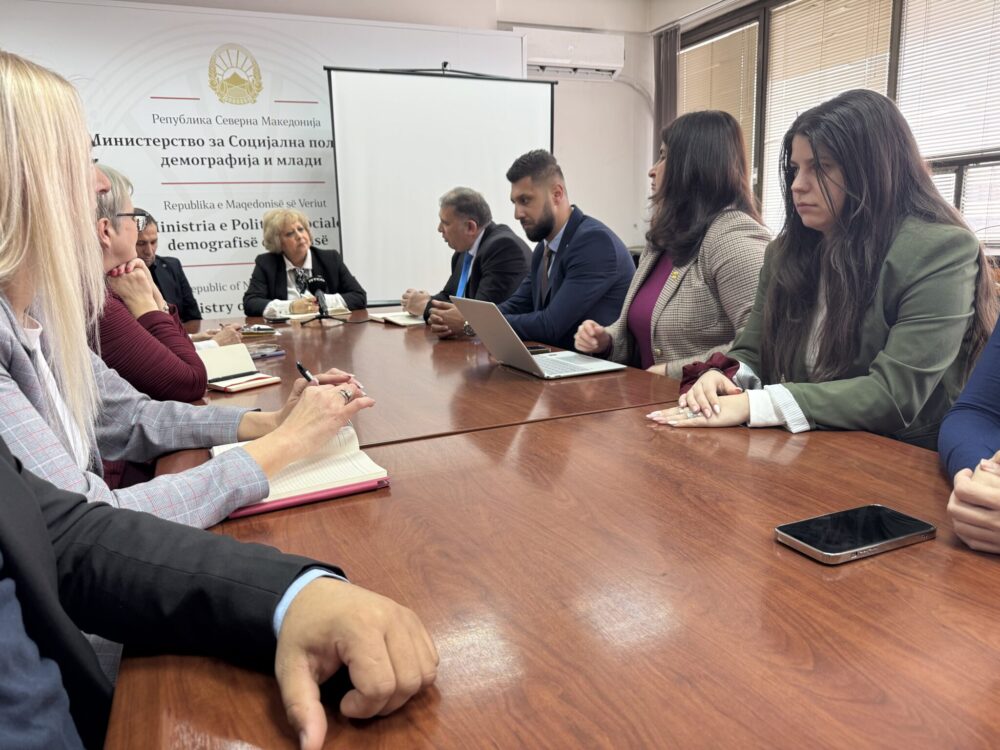Help discussed models of Roma inclusion with state institutions and RE activists in Skopje
Education and political representation of Roma are key recommendations that Roma, representatives of ministries and the Government of North Macedonia, conveyed to the Montenegrin group that paid a study visit to Skopje in the last week of February, organized by Help.
The activities were implemented as part of the regional project "Inclusion and Economic Empowerment in the Western Balkans" funded by the German government.
North Macedonia has a large Roma community of around 50,000 inhabitants, and since the 1990s it has had the entire municipality of Šuto Orizari with a majority Roma population, which is governed by Roma themselves. Their first Roma mayor, then a two-term MP in the Parliament, now Deputy Minister for the Political System, Nexh Mustafa, was one of the hosts in the ministries, government and institutions of the system with whom they exchanged views on the position of Roma in the Western Balkans and successful models of inclusion.
Help brought representatives of the Roma community in Montenegro, the Roma World and CAREP, RE mediators, the first Democratic Party of Roma in Montenegro, the Montenegrin ministries of human and minority rights, health, social welfare, internal affairs, urbanism and spatial planning, as well as representatives of the Public Service Broadcasting RTCG from Montenegro to Skopje – all institutions with which Help has been cooperating for more than two decades in order to improve the economic and social position of Roma and Egyptians in Montenegro and their full inclusion in society.
For more than two decades, the authorities of North Macedonia have been developing various models of inclusion of the relatively large Roma community in that country, relying on relevant European practices and legislation. The results are such that today over 300 participate in state and local government at various levels.
"Over the past 20 years of participating in the implementation of European policies, we have managed to change the mentality. Over 300 Roma today participate in the executive branch of government in various capacities, there is no ministry where Roma do not work, sometimes up to 10 of them," said Mustafa Nedzhaty, deputy minister.
The Roma in North Macedonia currently have as their political representatives an advisor to Prime Minister Sefer Drijaši, who is also the National Coordinator for Roma, and who hosted a delegation from Montenegro on a study visit in the plenary hall of the Government, the Minister for Inter-Community Relations, a Minister without Portfolio, a Deputy Minister for Local Self-Government and a Deputy Minister for the Political System.
"Our involvement in the work on negotiation chapters 19 and 23 in the EU accession process is extremely important. And the government of North Macedonia has attached particular importance to political representation and education when it comes to Roma inclusion. The government has allocated 200 scholarships for high school students for 2024/25. A special focus since 2011 has been on the legalization of illegally constructed buildings. From our experience, we can say that it is of utmost importance to ensure that when drafting the state budget, funds intended for Roma are clearly allocated and specified, so that they can be used for these purposes - at the state and local levels," said Drijaši.
According to the assessment of the interlocutors in Skopje, two things were crucial for achieving such representation of Roma in the institutions of the system: work on raising the quality of Roma education, as well as political engagement that ensured that the Roma voice was heard in decision-making positions, and thus ensured the entry of funds for Roma inclusion.
Preschool education in North Macedonia began in 2006. As a result, today there are an average of 250 to 300 Roma students per year at universities. Preschool education is implemented in a total of 21 municipalities with a Roma population, with an average of around 400 children from the community attending annually, and is largely free for families receiving social assistance, foster families or single parents.
Primary and secondary education in North Macedonia is a legal obligation, and according to Arabela Iljas, Roma coordinator for public education policies at the Ministry of Education, thanks to the 30 percent budget allocated to Roma education, a generous budget for education, Roma pupils and students are provided with scholarships during their education.
North Macedonia also has a special National Plan for Roma women – which was developed based on the recommendations of the Council of Europe, and which no other country in the region has, emphasized Assistant Minister for Social Policy and Demography Mabera Kamberi.
“This was also done on the basis of the Law on Equal Opportunities and Gender Equality adopted in 2006. According to European records, North Macedonia has 54 percent of good legal regulations related to rights: budget planning of gender-responsive policies, 40 percent quota for participation in political life, implementation of obligations from the Istanbul Convention, Poznan Declaration. We also have a Department for Equal Opportunities, which is specifically focused on ensuring Roma women: equal access to education
